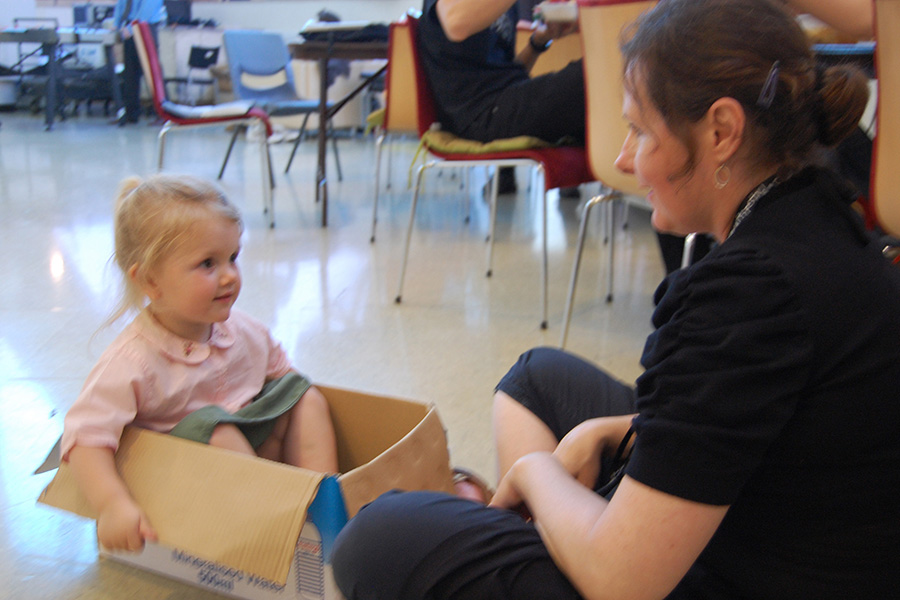This is part of a package of stories, Care for Caregivers.
“Careful the things you say—children will listen,” a famously childless songwriter once wrote. But how right, as usual, Stephen Sondheim was. I for one can vouch for the verity of this double-edged truism, as I hear myself repeating hoary exhortations to my young boys I never imagined I’d say, and am often brought up short by the seemingly inverse relationship between the words I think I need them to hear, to which they appear selectively oblivious, and the verbal arrows I throw offhandedly or in the heat of anger, onto which they hang tenaciously. Plus ça change: To this day I too can call to mind my own parents’ and teachers’ criticisms as or more quickly than I can their praise.
But parents aren’t the only ones with responsibilities to others and generational legacies we are entrusted with, and the children who listen aren’t just our literal offspring. As Sondheim has devoted some of his boundless energy to teaching and mentorship, we are all called not only to build on the work of our elders and peers but to tend the flame and pass it on to those who come after us. In the theatre this traditionally means learning and inculcating disciplines, aesthetics, and ethics—in short, best practices. These are not, however, simply matters of optimizing production, stage excellence, etc. Rather, at their best, they are rooted in an ethic of care as an end in itself. Theatre, after all, gathers live humans in a space to witness other live humans in acts of storytelling, pain, imagination, transcendence. And if that basic practice doesn’t include care for the bodies of those congregated humans—and for the family and social entanglements they may have, whether children, elderly parents, or someone else—then it is incomplete, even a self-contradiction. Theatre without humanity isn’t either.
This special issue on “Care for Caregivers” sprang from a daylong summit last December at the Public Theater in New York City, hosted by Parent Artist Advocacy League, on caregiver support in the theatre. I attended and heard inspiring case studies, meaty discussions, telling anecdotes, and sobering admonitions from artists and administrators, detailing the small strides the theatre field has made on the long road it still has yet to travel toward fully taking care of its own. There was enough material that day to fill several issues, but with the help of PAAL founder and summit organizer Rachel Spencer Hewitt, who served as an editorial consultant as well as a contributor, we homed in on some signature stories to give a sense of how this conversation has evolved. There’s a sampling of how a handful of parent artists have advocated for themselves and their children, from positions of power and otherwise; a look at how the Off-Broadway company the Playwrights Realm instituted a “radical parent inclusion” project; and an agelessly wise Q&A among two parent artists, Mary Hodges and Emily Mann. Spencer Hewitt has also pulled together a valuable resource guide for those among you, artists and administrators alike, who want to implement more caregiver-friendly policies.
One big takeaway from the summit, which I hope comes through in these stories as well, is that though there may be no single silver bullet to solve the work/life imbalance, it actually doesn’t cost that much to help theatre workers offset childcare costs, for instance, or to accommodate their schedules—particularly weighed against the incalculable costs to the field of losing their best efforts. If we can manage to effect change in this realm, it’s important to remember it’s not just for our own sake. Children don’t just listen to what we say, after all; they also watch we do.


